Rhetorical Analysis of Roxanne Horde's Essay on Bruce Springsteen
VerifiedAdded on 2020/04/29
|5
|980
|204
Essay
AI Summary
This essay offers a rhetorical analysis of Roxanne Horde's essay, which explores the political dimensions of Bruce Springsteen's lyrics. The analysis delves into Horde's argument that Springsteen's songs, despite his lack of overt political activism, function as political statements, examining the rhetorical strategies used to support this claim. The essay scrutinizes Horde's interpretations of various Springsteen songs, including "Growin' Up" and "American Skin (41 Shots)," highlighting how she perceives them as critiques of social injustice, the American Dream, and the government's role. The analysis also considers Horde's emphasis on the communal aspect of Springsteen's live performances and their role in fostering a collective political consciousness among his fans. The essay concludes that Springsteen's work engages with political issues, whether intentionally or not, and that Horde's analysis effectively establishes his place within a framework of collective politics.
1 out of 5
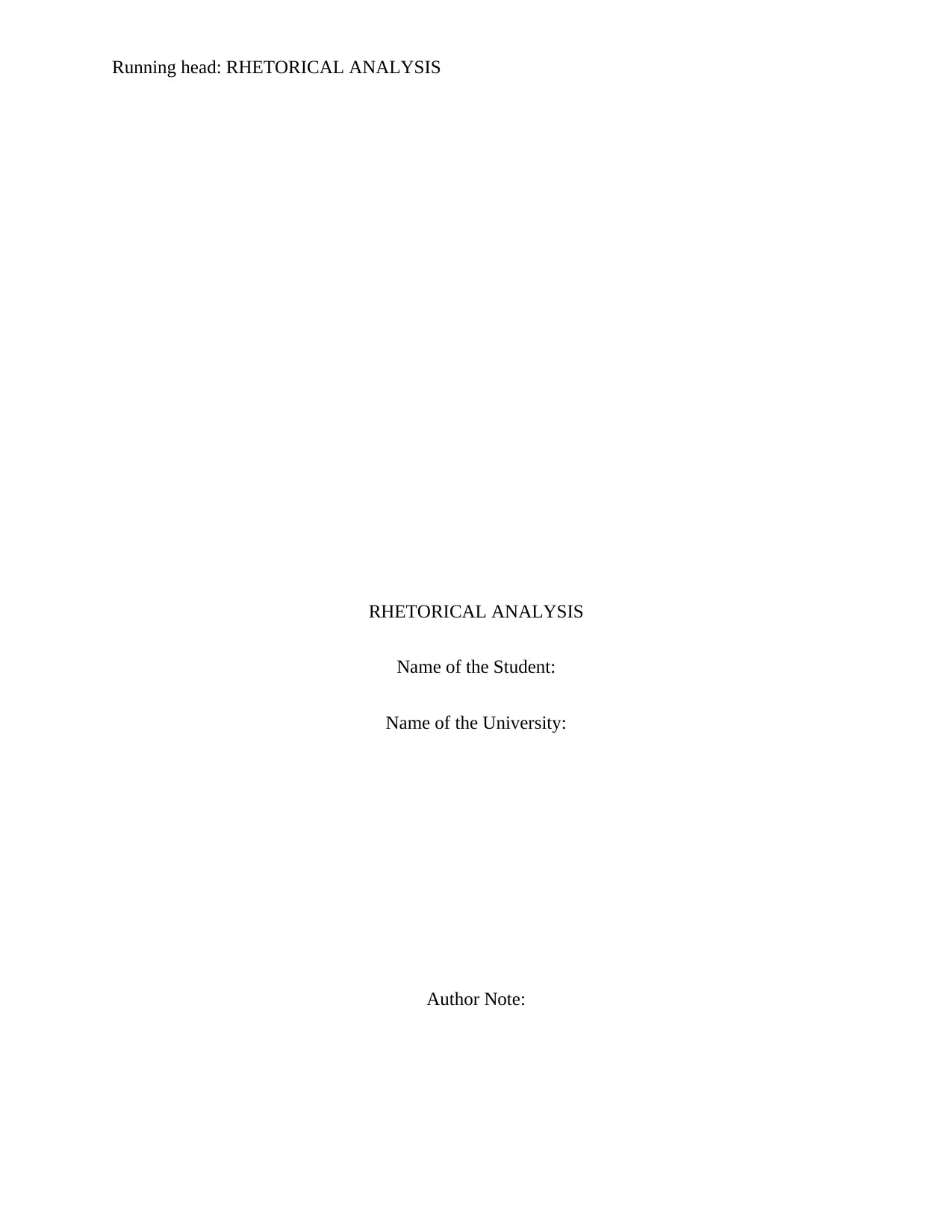
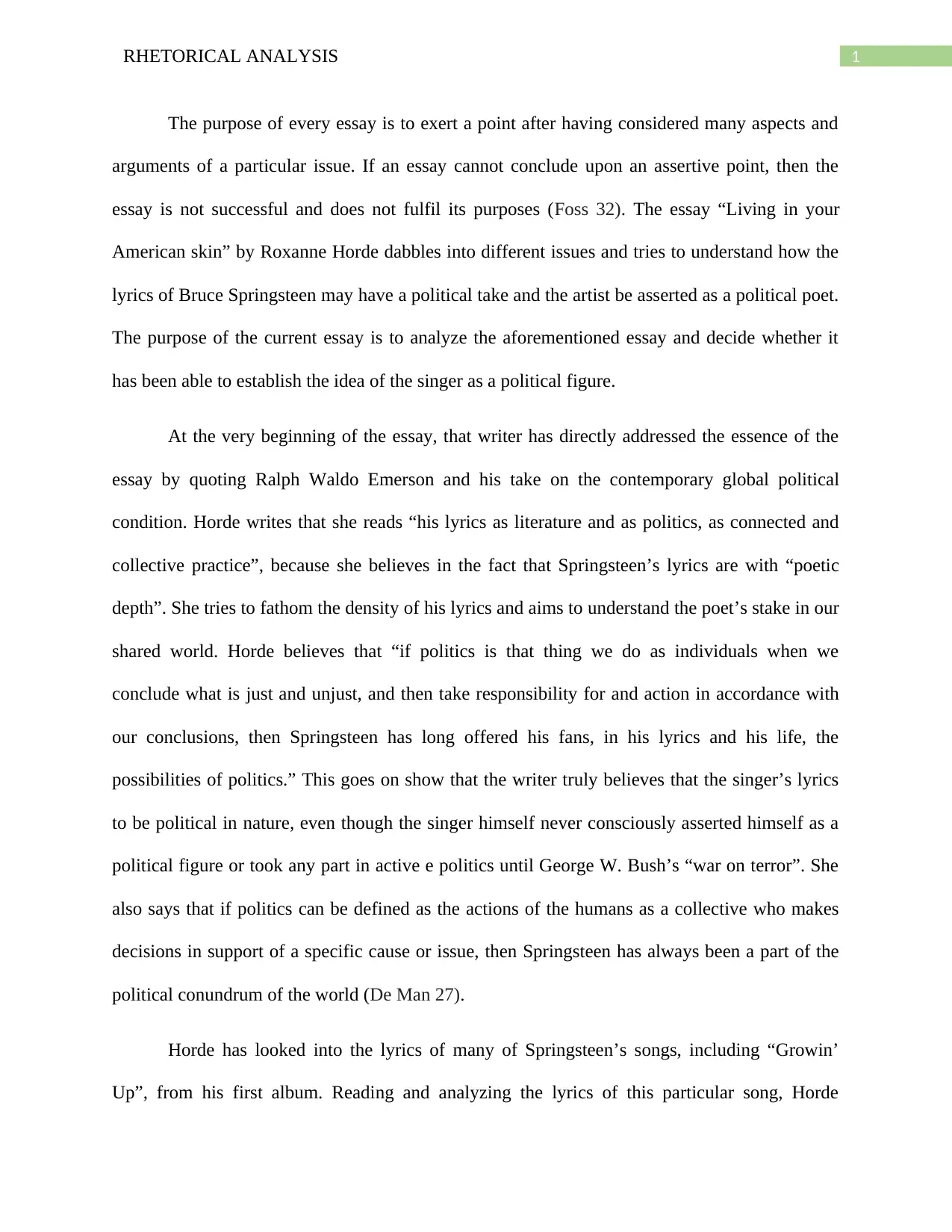
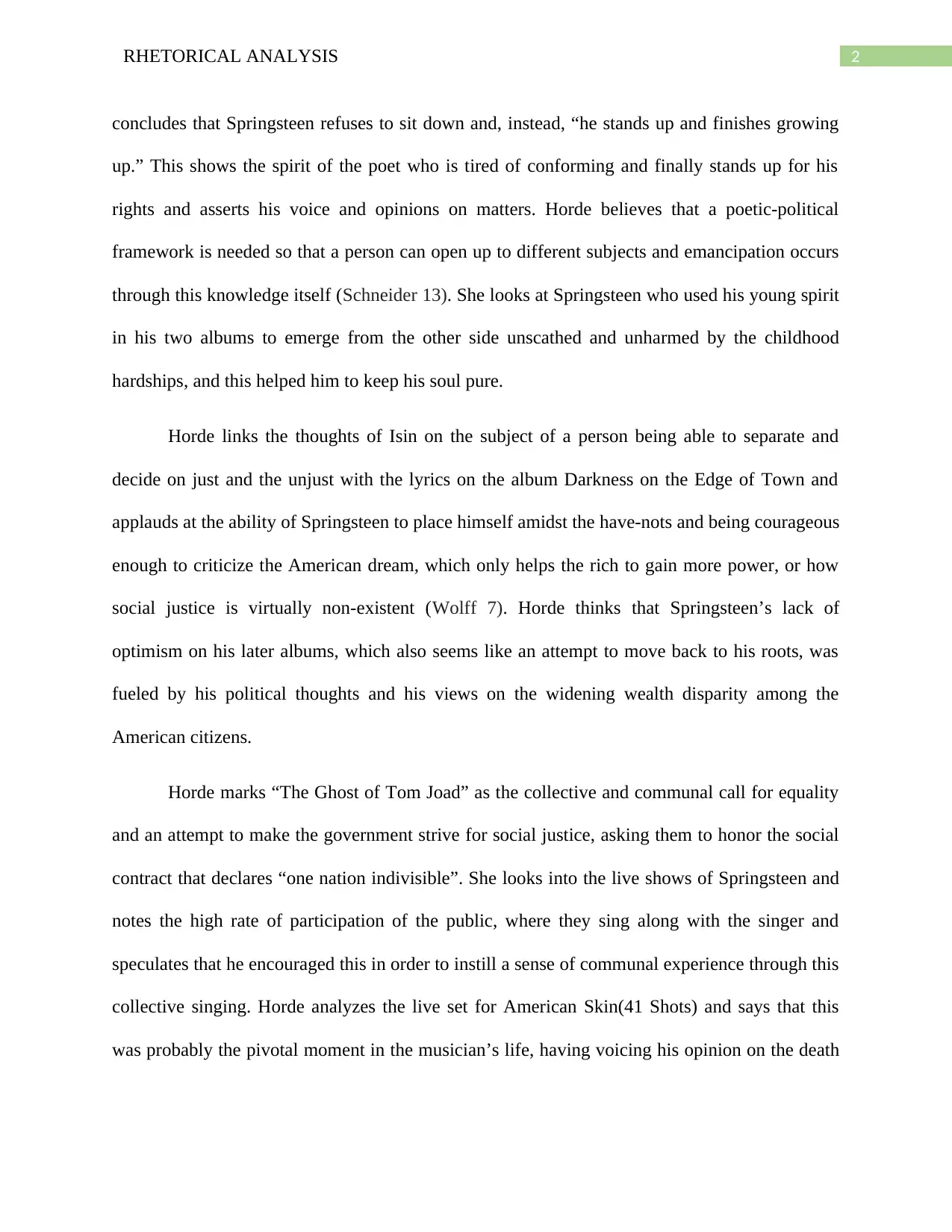

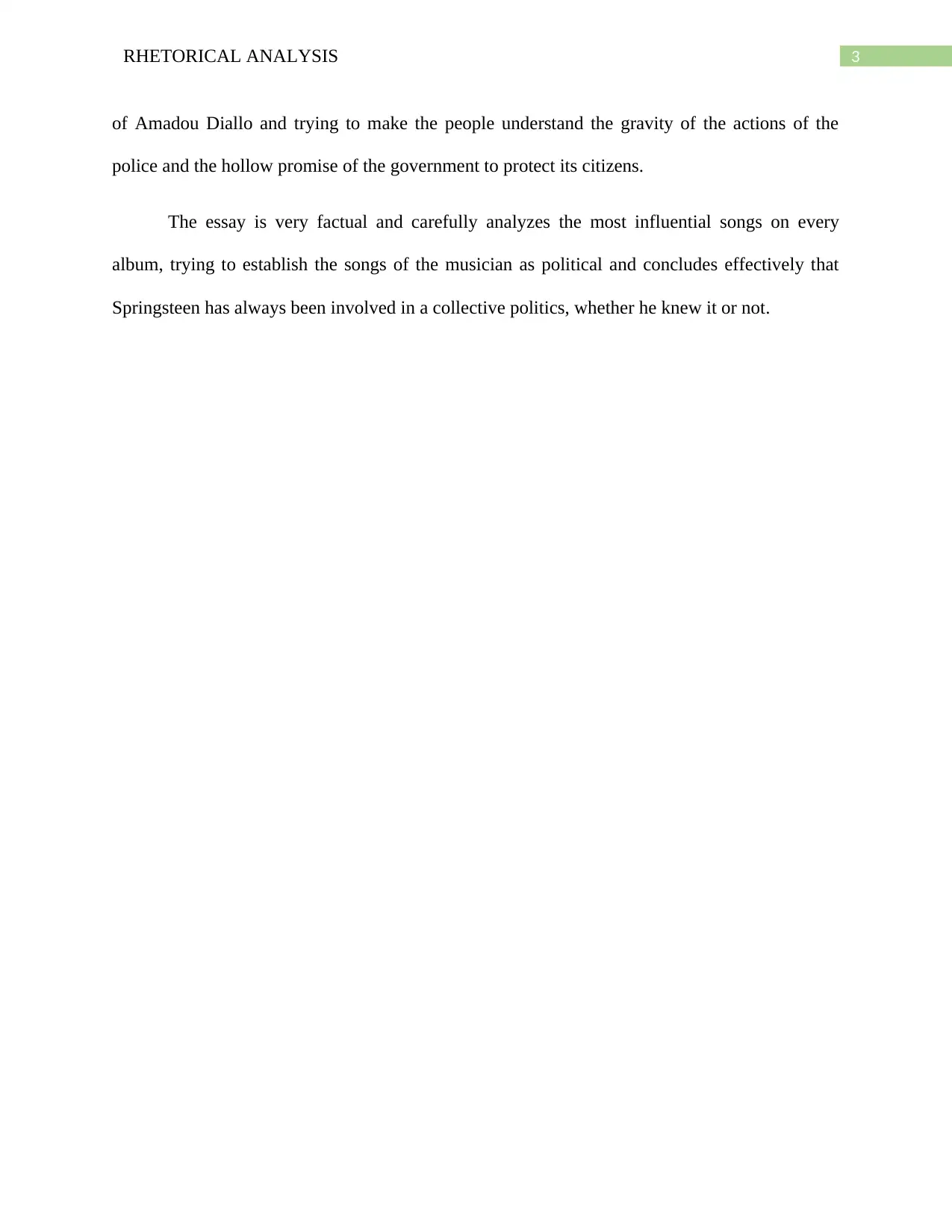
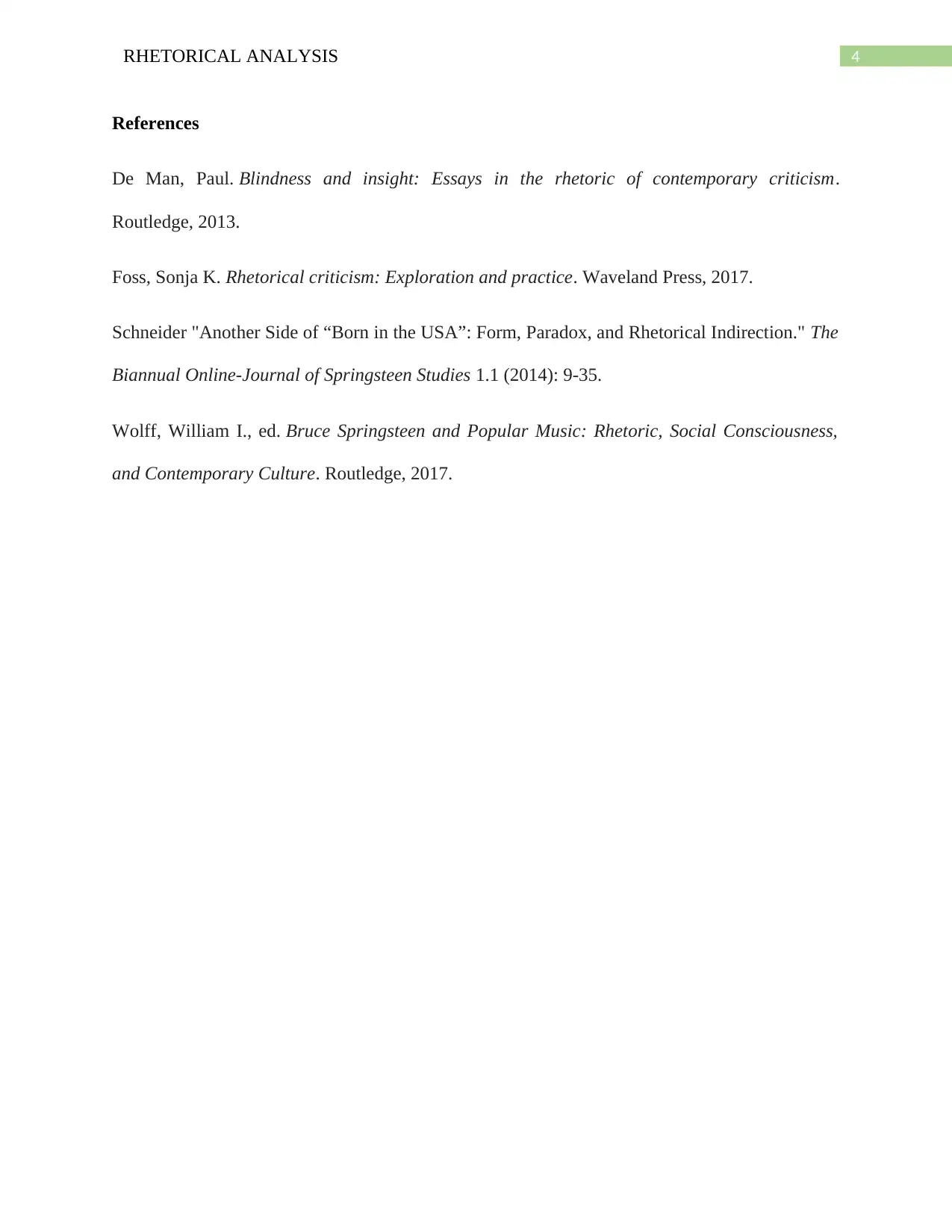
![[object Object]](/_next/static/media/star-bottom.7253800d.svg)